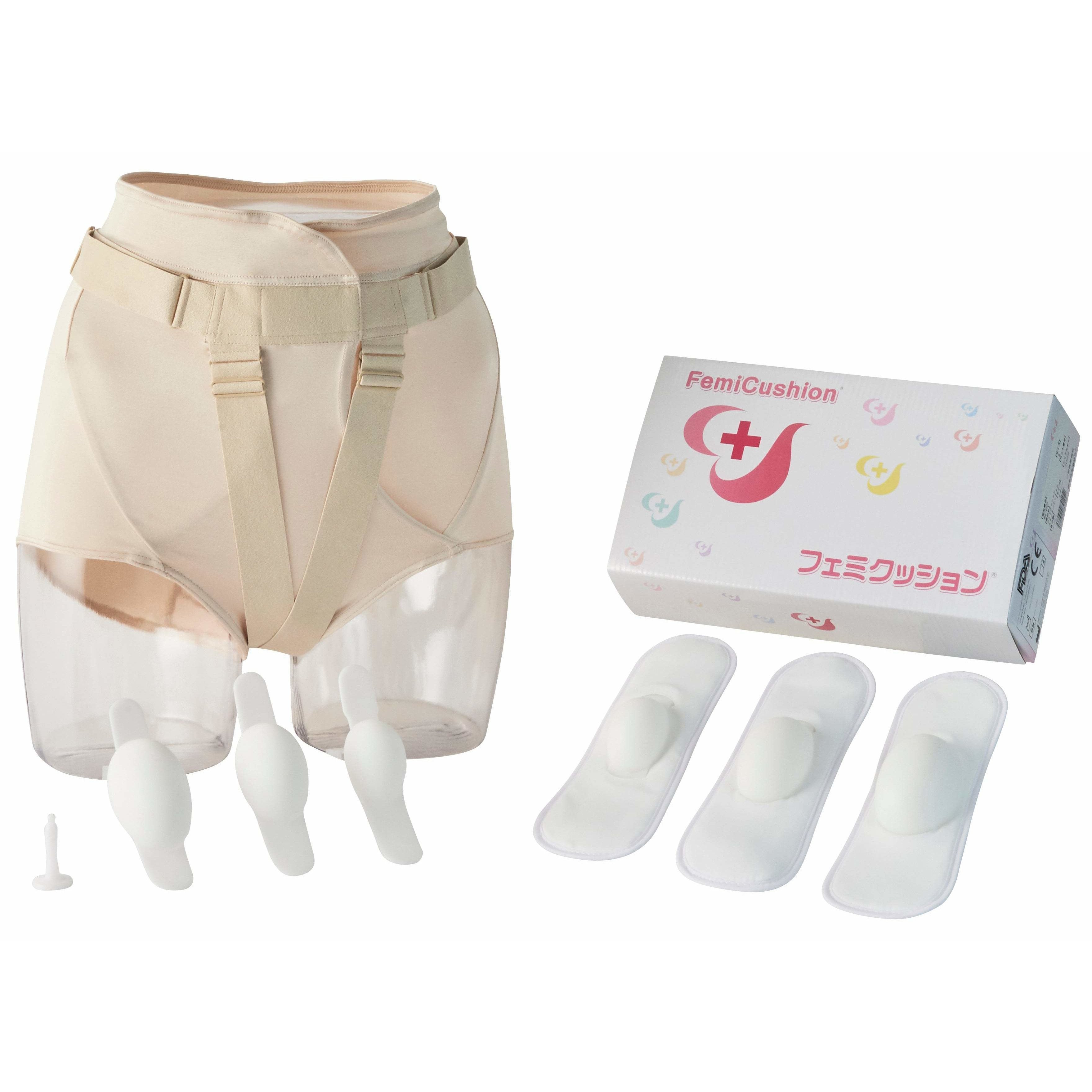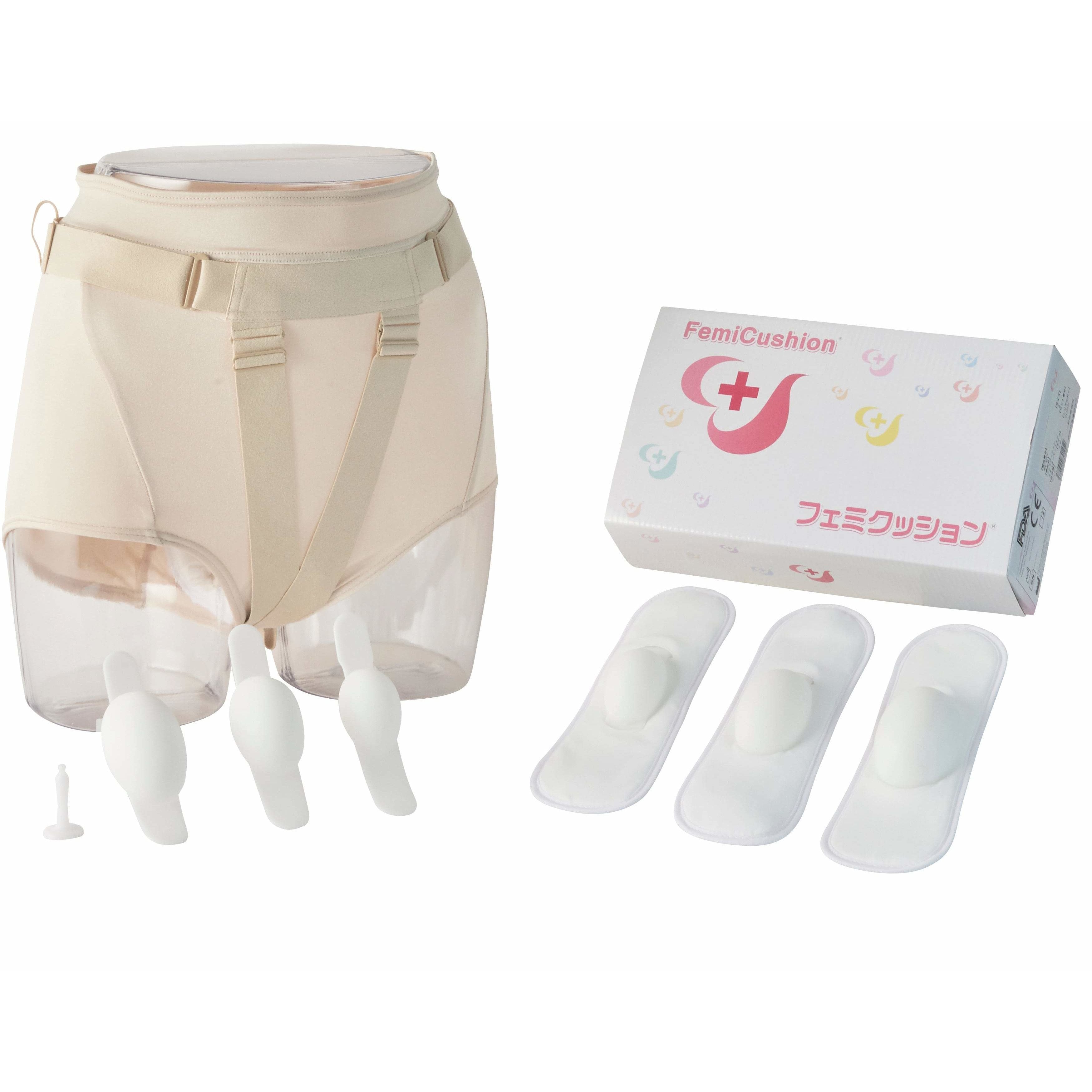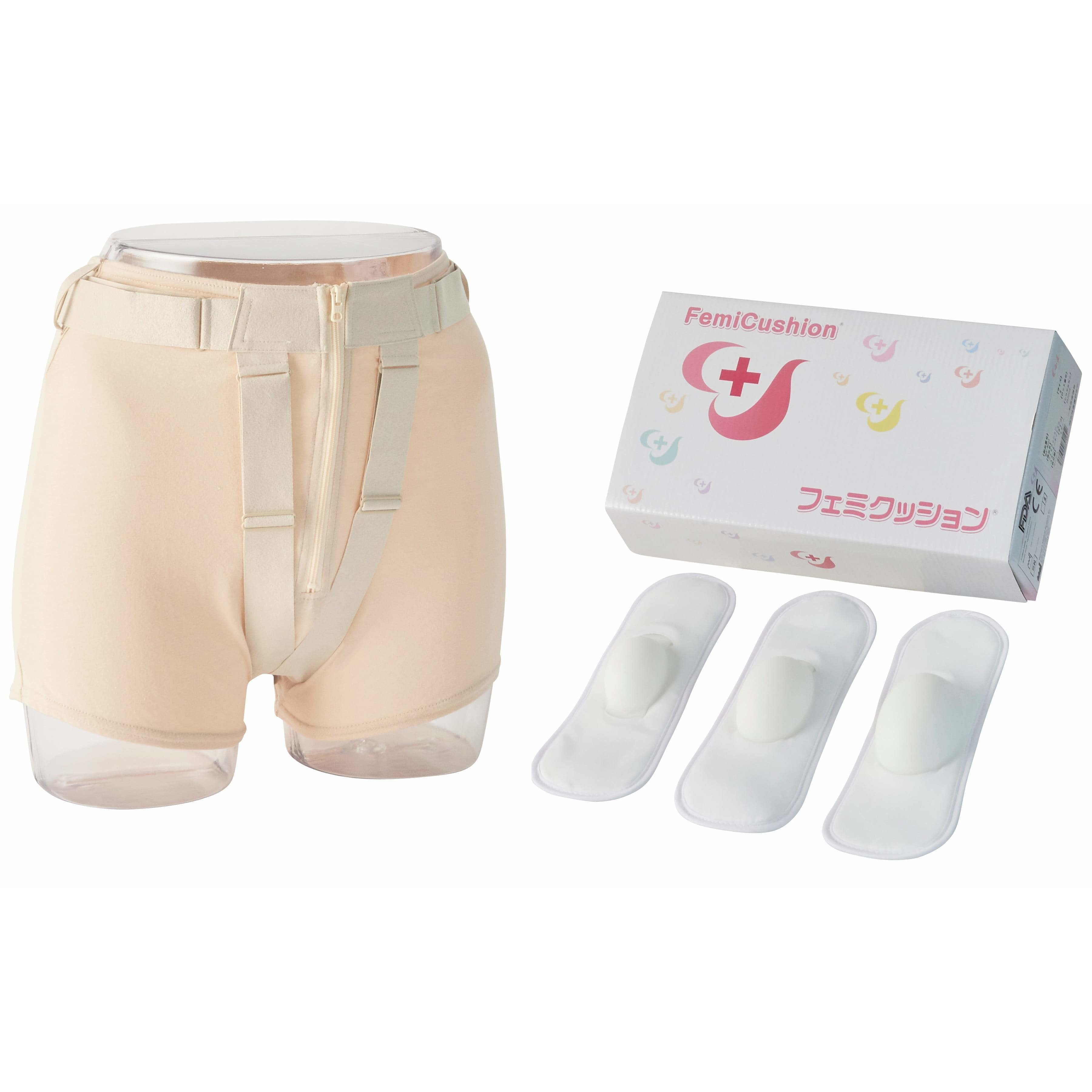Pelvic Organ Prolapse Surgery Pros and Cons | Shoud I have Surgery ?
Summary
Table of Contents

For many people even the thought of surgery is scary enough let alone the action of going through it. It is a big decision that requires careful consideration between the patient and doctor. Both parties have the responsibility to weigh out all the factors and possibilities to decide what is the best next step to take.
To treat pelvic organ prolapse, there are two main types of surgeries that the doctors may suggest: closing part of or all of the vagina (obliterative) and repairing the pelvic floor or organ placement (reconstructive). Factors like age, future family plans, or current health conditions can help determine which surgery is better fit or if having surgery is even an option.
Prolapse surgeons uses different techniques to perform different prolapse surgeries. Below are some of the techniques that they may use.
- Prolapse surgery done vaginally: This is the most common type of pelvic organ prolapse surgery that involves making incisions in the vaginal wall.
- Prolapse surgery through the abdomen: This surgery is typically performed for women with severe prolapse or a history of failed surgeries. It involves making an incision in the lower abdomen to access the pelvic organs.
- Laparoscopic surgery: This is a minimally invasive surgical procedure that uses small incisions and a laparoscope (a thin, lighted tube with a camera) to access and repair the prolapse.
- Robotic-assisted surgery: This is a newer surgical technique that uses a robotic arm to assist the surgeon with the repair of the prolapse. It offers better visualization and precision compared to traditional laparoscopic surgery.
- Mesh surgery: This type of surgery involves using a mesh material to support the prolapsed organs. However, mesh surgery has been associated with serious complications, including pain, infection, and erosion, and its use has become controversial in recent years. In April 2019, the Food and Drug Administration (FDA) ordered that all makers of vaginal mesh for transvaginal repair of pelvic organ prolapse to stop producing and distributing this product immediately. Learn more here.
Types of Pelvic Organ Prolapse Surgeries
Anterior (front) vaginal wall repair: This is also known as cystocele repair for bladder prolapse. The surgeon makes an incision in the front wall of the vagina and repositions the bladder back into its healthy position. Then the the tissues and muscles around the bladder and vagina is tightened to lift and provide support to the bladder.
Posterior (back) vaginal wall repair: Also known as rectocele repair or posterior colporrhaphy is treat prolapse caused by the rectum bulging into the back of the vaginal wall. For this procedure, an incision is made in the back wall of the vagina to reposition the rectum back into its healthy position. The surgeon then tightens and strengthens the surrounding tissues and muscles of the rectum to lift and support it.
Sacrocolpopexy and sacrohysteropexy: Both of these procedures aims to treat uterine prolapse. Sacrohysteropexy is a surgical procedure that uses graft tissues or surgical mesh to connect the top of the vagina and sacrum (a bony structure located at the base of the backbone and is connected to the pelvis). For sacrohysteropexy, it is the same procedure but the cervix is attached to the sacrum instead. Both of these procedures will provide long-term support to the uterus.
Sacrospinous fixation: in this procedure, the surgeon will make an incision in the vaginal wall and use sutures or vaginal mesh to attach the top of the vagina to the sacrospinous ligament (a band of tissue that attaches the sacrum, the bony structure at the base of the spine) to the ischial spine (a bony projection in the pelvis).
Since pelvic organ prolapse is not a life-threatening condition, it may be in your best interest to search for other options before deciding on surgery. To help you better understand what pelvic organ prolapse surgery entails, let's take a look at the pros and cons.
The Pros of Surgery

Improved Placement of Pelvic Organs
Undergoing surgery significantly improves the placement of pelvic organs, which results in the elimination of symptoms caused the pelvic organ prolapse.
No Need for Pessary
Obliterative and reconstructive pelvic organ prolapse surgery eliminates the need for ring pessaries. A pessary is a medical device that is inserted in the vagina to prevent organs from sinking further down causing pain and discomfort.
The Drawbacks of Surgery

Risks and Implications
Every surgery comes with its own set of risks and implications no matter the success rate of the surgery or the skills of the surgeon. Pelvic organ prolapse surgeries comes with high risks which includes surgical complications like infections or bleeding. New issues like pelvic pain or urinary incontinence can also be caused by surgery. Lastly, undergoing surgery does not guarantee long-term effectiveness.
Long Recovery Time
Just because the surgery was a success, it doesn’t mean that you will no longer feel pain or discomfort. Undergoing surgery requires hospitalization and it can take several weeks to fully recover from the surgery.
High Cost
Surgery is not cheap, it can cost from $6,000 up to $9,000 and this does not include additional doctor’s appointment fees or hospitalization fees. Not every woman has the financial freedom to afford the price of surgery.
Loss of Sexual Function with Obliterative Surgery
Most patients who undergo obliterative surgery are women who no longer desire to preserve their sexual function as it requires the closure of all or part of the vaginal. This also means that women who desires to bear a future child are not suitable for this surgery.
Types of Surgery for Prolapse
-
Combined Vaginal Hysterectomy and Anterior-Posterior Vaginal Wall Repair:
This traditional gynecological procedure involves removing the uterus that has protruded through the vagina and cutting and suturing the anterior and posterior vaginal walls. Since this method stitches damaged tissue, there is a high chance that the vaginal walls may loosen over time, leading to a recurrence of prolapse involving the bladder, rectum, or small intestine. -
Transvaginal Mesh Surgery (TVM):
Transvaginal Mesh Surgery (TVM), which stands for Tension-free Vaginal Mesh, aims to reinforce the weakened vaginal wall with a mesh that does not create tension. This procedure was developed by Dr. Cosson in France in 2000 and was first performed in Japan by Dr. Takeyama and Dr. Shimada in 2004. However, issues such as mesh exposure, infection, erosion, pain, and recurrence have been reported. The FDA issued two warnings in 2008 and 2011, and in April 2019, it ordered the complete withdrawal of three products from two companies. Consequently, this type of surgery is now banned in most countries, including the United States. In Japan, surgery continues to be performed safely using the domestically produced ORIHIME mesh. -
Laparoscopic Sacrocolpopexy (LSC):
This procedure involves using a mesh to secure the cervix to the sacrum (the bone at the base of the spine) through laparoscopic techniques. LSC is becoming the standard as many hospitals are moving away from TVM. While recurrence rates are reported to be low, literature varies on this topic, and complications such as infection can occur. LSC maintains vaginal depth and minimizes discomfort during intercourse since no mesh is placed inside the vagina. It is suitable for younger patients as well. Although some expert surgeons can complete the procedure in under two hours, it typically takes around three hours (and sometimes up to six), which can place a physical burden on the patient. -
Robot-Assisted Sacrocolpopexy:
This is a robotic-assisted version of the sacrocolpopexy procedure. As of April 2020, the da Vinci Surgical System has been covered by insurance for pelvic organ prolapse surgeries, allowing for procedures to be performed under insurance coverage. The high-performance surgical robot offers precision and excellent maneuverability, making the surgery more efficient and reducing the physical burden on patients compared to traditional laparoscopic methods. -
Vaginal Closure:
In cases where patients are elderly, bedridden, or do not engage in sexual intercourse, the vagina may be closed with a small gap left (enough for a pencil to fit) to allow for some vaginal patency. However, many patients may still experience a feeling of heaviness or descent in the perineal area, even if organs do not protrude. This procedure is generally not performed on healthy individuals.
Life After Prolapse Surgery
After surgery, patients usually stay at the hospital for a few days afterward for additional care and monitoring. Here are some things that you should keep in mind after prolapse surgery.
Main management: Pain after surgery is common and it often feels menstrual cramping. Your doctor should have prescribed you with pain medications or instructions to take over-the-counter pain medications.
Physical Activity: It is important to limit physical activity after the first few weeks of surgery. Rest is an essential part of recovery and manning pain as well.
Wound Care: Keeping the area clean and dry is important. Make sure to follow your doctors directions on how to care for the wound. Light bleeding or spotting is not uncommon after surgery.
Diet: Patients should be able to resume their normal diet after surgery. However, it is recommended to eat gentle foods in the first few weeks of recovery and for those who struggle with constipation, eating easily digestible foods are ideal.
Clothing: Loose fitting clothing is recommended to prevent unwanted pressure on the abdomen.
After prolapse surgery, using FemiCushion is highly recommended for added comfort during your recovery. It helps alleviate pressure and supports a smoother healing process.
The Non-Surgical Solution

If you are looking for a non-invasive but effective alternative to surgery, we got you covered. FemiCushion is an innovative medical device to treat pelvic organ prolapse that has been in the market for over ten years. We have been helping women all across the world who suffers from pelvic organ prolapse. It is designed not only to treat but also to prevent all types of pelvic organ prolapse symptoms caused by uterine prolapse, bladder prolapse (cystocele), enterocele, and rectocele. This treatment method is gentle but effective to avoid all the side effects associated with undergoing surgery or using a pessary.
Don’t let your pelvic organ prolapse control your life, find out how you can live worry free with FemiCushion.
Disclaimer
The information on this site is not intended or implied to be a substitute for professional medical advice or diagnosis. All content, including text, graphics, images, and information, contained on or available through this website is for informational purposes only.
Supervising Doctor of This Article

Koichi Nagao, MD PhD
Professor, Department of Urology, Toho University Faculty of Medicine
Director of Urinary tract reconstruction center, Toho University Omori Medical Center
Director of Reproduction Center, Toho University Omori Medical Center
Professor Nagao specializes in plastic surgery in the field of reproductive medicine. He completed eight years of plastic surgery training at Showa University before majoring in urology at Toho University. With his meticulous surgical techniques and careful examinations that combines urology and plastic surgery, Professor Nagao became a Board Certified Specialist with multiple associations including the Japanese Urological Association, the Japan Society for Reproductive Medicine, and the Japanese Society for Sexual Medicine.
The suggested Products

FemiCushion EasyOpen Deluxe Kit
$299.99

FemiCushion Standard Deluxe Kit
$299.99

FemiCushion Lite Kit
$249.99
